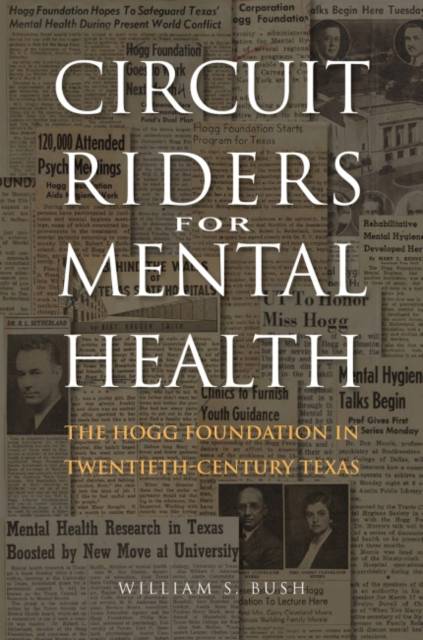
- Afhalen na 1 uur in een winkel met voorraad
- Gratis thuislevering in België vanaf € 30
- Ruim aanbod met 7 miljoen producten
- Afhalen na 1 uur in een winkel met voorraad
- Gratis thuislevering in België vanaf € 30
- Ruim aanbod met 7 miljoen producten
Zoeken
Circuit Riders for Mental Health
The Hogg Foundation in Twentieth-Century Texas
William S Bush
Hardcover | Engels
€ 61,45
+ 122 punten
Omschrijving
Circuit Riders for Mental Health explores for the first time the transformation of popular understandings of mental health, the reform of scandal-ridden hospitals and institutions, the emergence of community mental health services, and the extension of mental health services to minority populations around the state of Texas. Author William S. Bush focuses especially on the years between 1940 and 1980 to demonstrate the dramatic, though sometimes halting and conflicted, progress made in Texas to provide mental health services to its people over the second half of the twentieth century. At the story's center is the Hogg Foundation for Mental Health, a private-public philanthropic organization housed at the University of Texas.
For the first three decades of its existence, the Hogg Foundation was the state's leading source of public information, policy reform, and professional education in mental health. Its staff and allies throughout the state described themselves as "circuit riders" as they traveled around Texas to introduce urban and rural audiences to the concept of mental health, provide consultation for all manner of social services, and sometimes intervene in thorny issues surrounding race, ethnicity, gender, class, region, and social and cultural change.
For the first three decades of its existence, the Hogg Foundation was the state's leading source of public information, policy reform, and professional education in mental health. Its staff and allies throughout the state described themselves as "circuit riders" as they traveled around Texas to introduce urban and rural audiences to the concept of mental health, provide consultation for all manner of social services, and sometimes intervene in thorny issues surrounding race, ethnicity, gender, class, region, and social and cultural change.
Specificaties
Betrokkenen
- Auteur(s):
- Uitgeverij:
Inhoud
- Aantal bladzijden:
- 216
- Taal:
- Engels
Eigenschappen
- Productcode (EAN):
- 9781623494445
- Verschijningsdatum:
- 23/09/2016
- Uitvoering:
- Hardcover
- Formaat:
- Genaaid
- Afmetingen:
- 165 mm x 241 mm
- Gewicht:
- 521 g

Alleen bij Standaard Boekhandel
+ 122 punten op je klantenkaart van Standaard Boekhandel
Beoordelingen
We publiceren alleen reviews die voldoen aan de voorwaarden voor reviews. Bekijk onze voorwaarden voor reviews.











